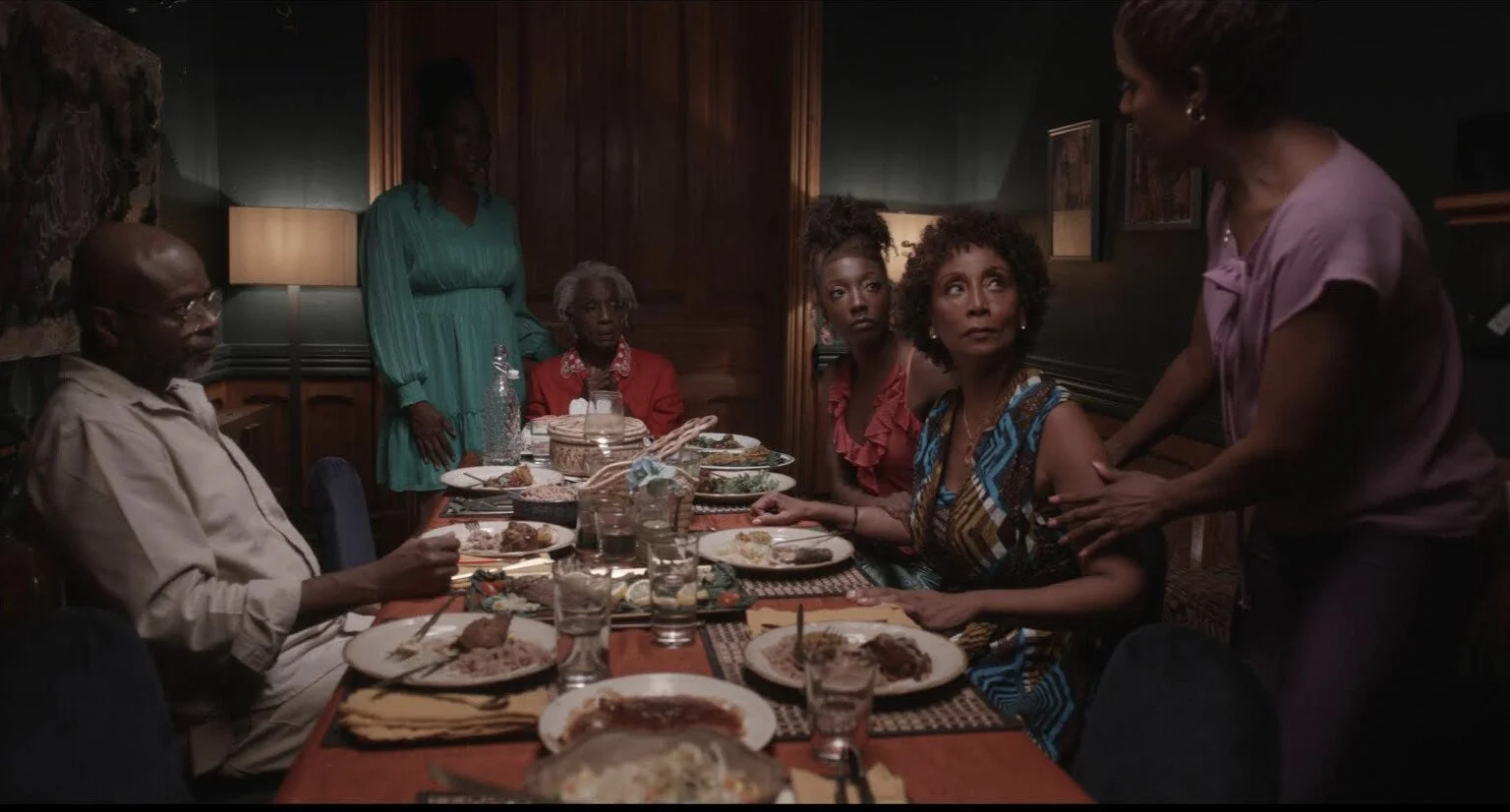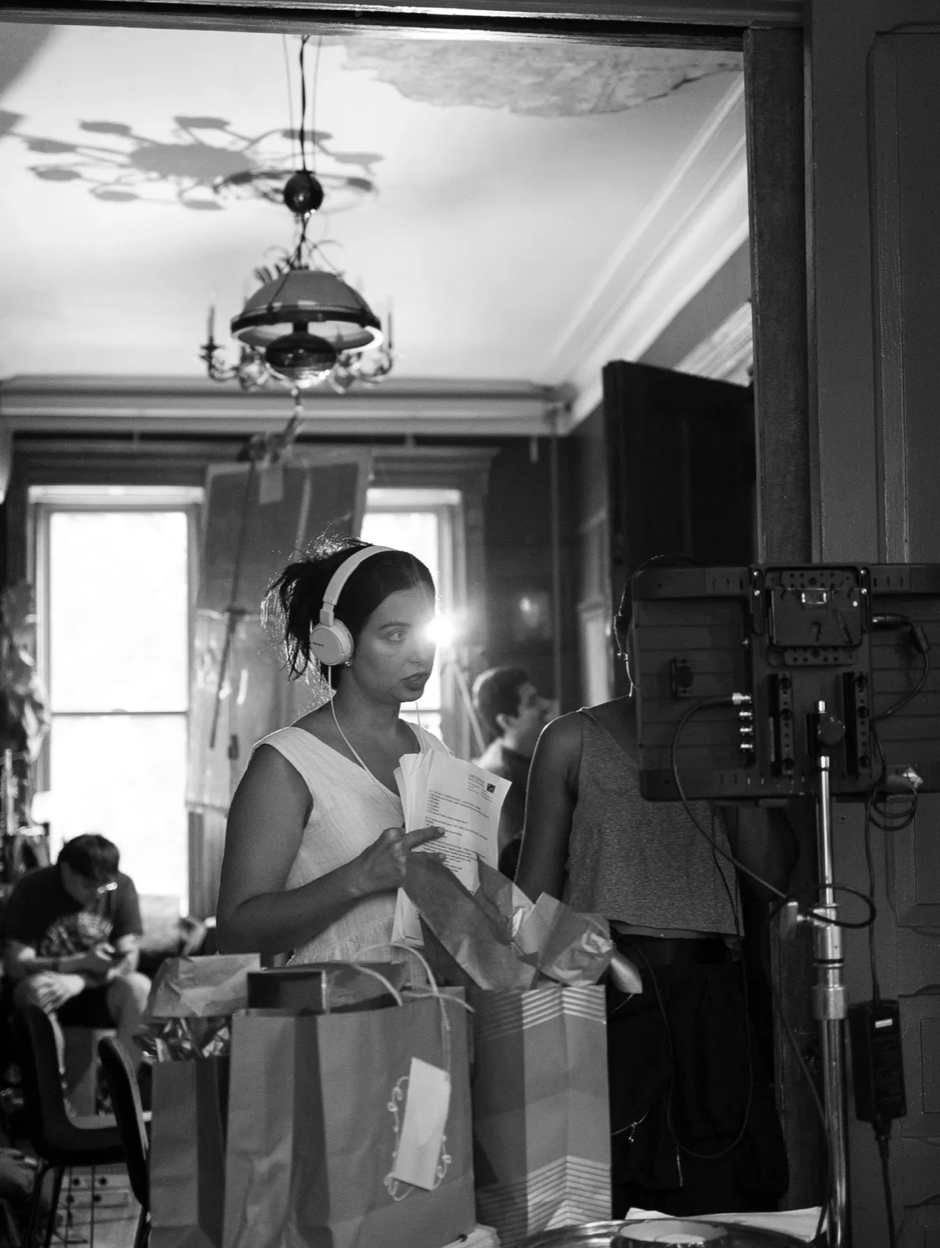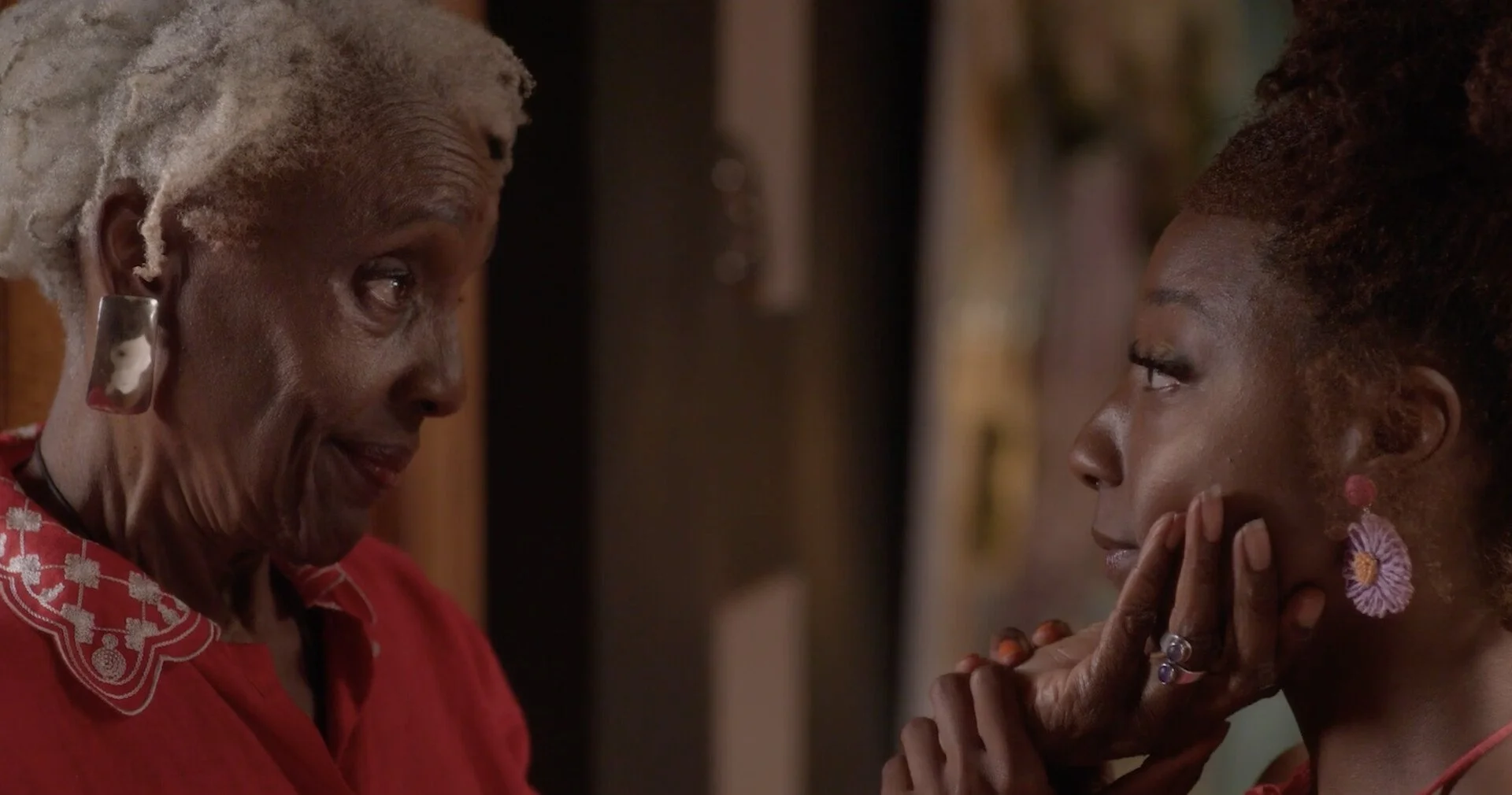Writing Through the Silence: Victoria Perry & Amanda Mandii’s Intimate Filmmaking Journey
Welcome Amanda and Victoria, we are very excited to have you today with us to discuss about your work.
Who are Victoria Perry & Amanda Mandii and how did the passion for creating begin?
We are writers, co-directors and independent filmmakers, who share a passion for storytelling and a commitment to authenticity. Our love for creating was shaped by our upbringings and a lifelong urge to better understand ourselves and the world around us. We both began writing as children, in our bedrooms, away from our families, each exploring vast and boundless inner worlds on our own. While we continue to pursue individual artistic paths, the friendship we formed in adulthood opened the door to a shared “third voice” and creative partnership. We find great joy in writing and creating from this unique, collaborative voice.
Can you tell us a bit about your previous work?
Before Someone Loves You, we collaborated on a number of independent film projects that served as invaluable learning experiences. Victoria had a short film, EVERYWHERE YOU GO — a surrealist thriller — which screened at the Newport Film Festival, Bushwick Film Festival, LA Shorts International Film Festival, and most recently had its online premiere with Beyond the Short. In 2022, Amanda published a novella and released a series of documentary photographs. Both individually and together, we have gained creative and on-set experiences — with some wins and some losses along the way. We’ve learned by doing and assisting other creatives and wearing multiple hats as creatives, across all aspects of production, which ultimately paved the way for the creation of this film.
This film is deeply rooted in lived experience. How did you navigate the challenge of translating personal, often painful memories into a universal, cinematic story?
When we started writing, we approached the material with vulnerability and sensitivity, recognizing that while the experiences we touched on are more specific and deeply personal for a community of us out there, the themes of family, love, loss, and healing are universal and can be beautiful to watch unfold cinematically. After we started building a community, we realized the very specific, deeply personal story we were telling was actually more universal than we ever imagined — not only in first generation households, but more specifically, within the Caribbean diaspora. We focused on emotional truth rather than exact replication of events, allowing our audience to connect with the core emotions and struggles of our characters. It was a delicate balance, because we also made a strong effort to protect our loved ones and our personal experiences that we were drawing from, while we made sure that we could convey a story that felt both intimate and accessible to all viewers. This is what is so amazing about writing narratives and world-building in fiction.
CONVERSATION ABOUT: '‘Someone Loves You''
Family, especially within Caribbean and Mediterranean cultures, often comes with complex codes of loyalty, silence, and love. How did you reflect these dynamics visually and emotionally through your characters?
We hosted a cast bonding dinner before filming, since we knew we had limited time on set and didn’t have the budget for rehearsal, outside of Zoom chemistry reads and our Zoom table read. This was because most of our characters were playing relatives, and a good amount of our cast also had a deep connection to the story we were telling, which helped. We worked with our DP, Laela Kilbourn, to use visual cues - through framing, lighting, and color - and also with our actors, to use blocking that would allow us to highlight the tension, underlying feelings and unspoken words between characters. Laela was brilliant as a DP and understood our vision, and she was able to pan around during our dinner scene, which we had limited medium closeups for, to capture those critical moments for us.
Growing up in Caribbean and Mediterranean families, we were able to draw from our experiences and direct our actors to convey the deep sense of familial duty, alongside the internal struggles that arise from cultural expectations. The silences between dialogue, as well as the small gestures of both affection and withdrawal, reveal the weight of these cultural codes. We were able to use intimate close-ups to emphasize what was simmering beneath the surface of each interaction. Our actors were excellent at building their inner worlds. We wanted to capture the tenderness and the burden of familial love, specifically within the constraints of cultural expectations and a first-generation American household.
As co-writers and co-directors, how do you balance your creative visions? Can you walk us through your collaboration process — what’s one thing you each brought to the table that surprised the other?
Our collaboration process is built on mutual respect and trust in each other's strengths. We both bring different perspectives, with Victoria focusing more on the emotional and character-driven aspects of the story, while Amanda has a keen eye for visual storytelling and atmosphere. We spent a lot of time in the script phase, discussing every scene in depth to ensure it aligned with both of our visions.
We’re both very stubborn, so there were definitely difficult moments where Amanda pulled for one option, and Victoria was passionate about a second option, but what we found was compromise came from a third option that emerged and ended up being the best one. It wasn’t without struggle and lots of compromise, but we were very well supported and it paid off. While Amanda viewed the film through a lens of personal healing, Victoria saw it as a broader exploration of generational trauma. This discovery helped us find a unique balance in the story, blending these two perspectives and supporting one another.
Were there scenes that felt particularly vulnerable or difficult to write or shoot — and how did you push through those moments?
Writing this film required us to confront buried emotions and personal histories. It began as a cathartic outlet—just one hour a week on Zoom during the pandemic. But once we committed to filming, emotional resistance emerged at every stage.
Amanda, in particular, struggled with the feeling that she was betraying her loved ones by telling such a sensitive story. One especially difficult day on set involved filming 16 pages, including a breakdown scene that hit very close to home for her. While both of us have family members who’ve experienced similar struggles, Amanda’s connection was even more personal. We gave her space to step away and supported her however we could.
We pushed through by staying grounded in our North Star: telling a story that could help others feel seen. Creating a safe, empathetic environment for our cast and crew was essential. What carried us forward was the belief in the story’s healing power—and the strength of our creative partnership.
What reactions do you hope to elicit from audiences watching your project ?
We hope to open up meaningful dialogue around mental health and humanize those experiencing its challenges. Our goal is to de-stigmatize these discussions, especially in communities where it's often taboo—Jamaican, Caribbean, Black, immigrant households, and beyond. It’s time to break generational patterns and broaden the conversation.
We want viewers to recognize the complexity of love—its ability to heal and to hurt—and feel seen in the vulnerability of our characters. Each family member has a different idea of what love and care look like, but they’re all trying.
Above all, we hope anyone facing mental health struggles, or caring for someone who is, knows that someone loves them—and they are seen.
In future projects, do you plan to explore similar genre intersections, or are there other genres you're eager to explore ?
I love writing drama. Also -- I've noticed, maybe because I have a Bachelor’s degree from NYU in Psychology, that I find myself gravitating toward writing a story of healing from trauma and exploring familial dynamics. I’m very intrigued by character and personality psychology. I also love working in surrealism and magical realism. I know I am strong in writing drama, so I will probably stick with that, but I do look forward to exploring stories that are a bit less heavy. Comedy would be a big challenge, but never say never!
-Victoria
I am committed to telling authentic stories with accuracy and raw truth. I am interested in the re-telling and reclaiming of positive Black and Caribbean stories. Black stories have been told by non-Black folks for too long. Additionally, I am looking forward to telling stories that focus on Black joy, as opposed to limiting our stories to just struggle and trauma, and I wish to have the creative freedom to do so, through independent cinema.
-Amanda
If you could send a message back in time to yourselves during those first Zoom writing sessions, what would you say?
Keep going! You’re on the brink of healing parts of yourself that you’ve buried for so long.
-Amanda
I would probably say - Just keep writing as if you’re never going to make this film. I feel that mindset, which was free of expectations, allowed us to write deeply and honestly. And maybe also: this story is incredibly important—it will help so many people. That was our guiding light.
-Victoria
This marks the conclusion of the interview featuring our esteemed artist, Victoria Perry and Amanda Mandii. Our community is growing steadily, with a continuous influx of skilled filmmakers and screenwriters joining us. Explore our other interviews, and consider scheduling one for yourself to showcase your creative endeavors.







